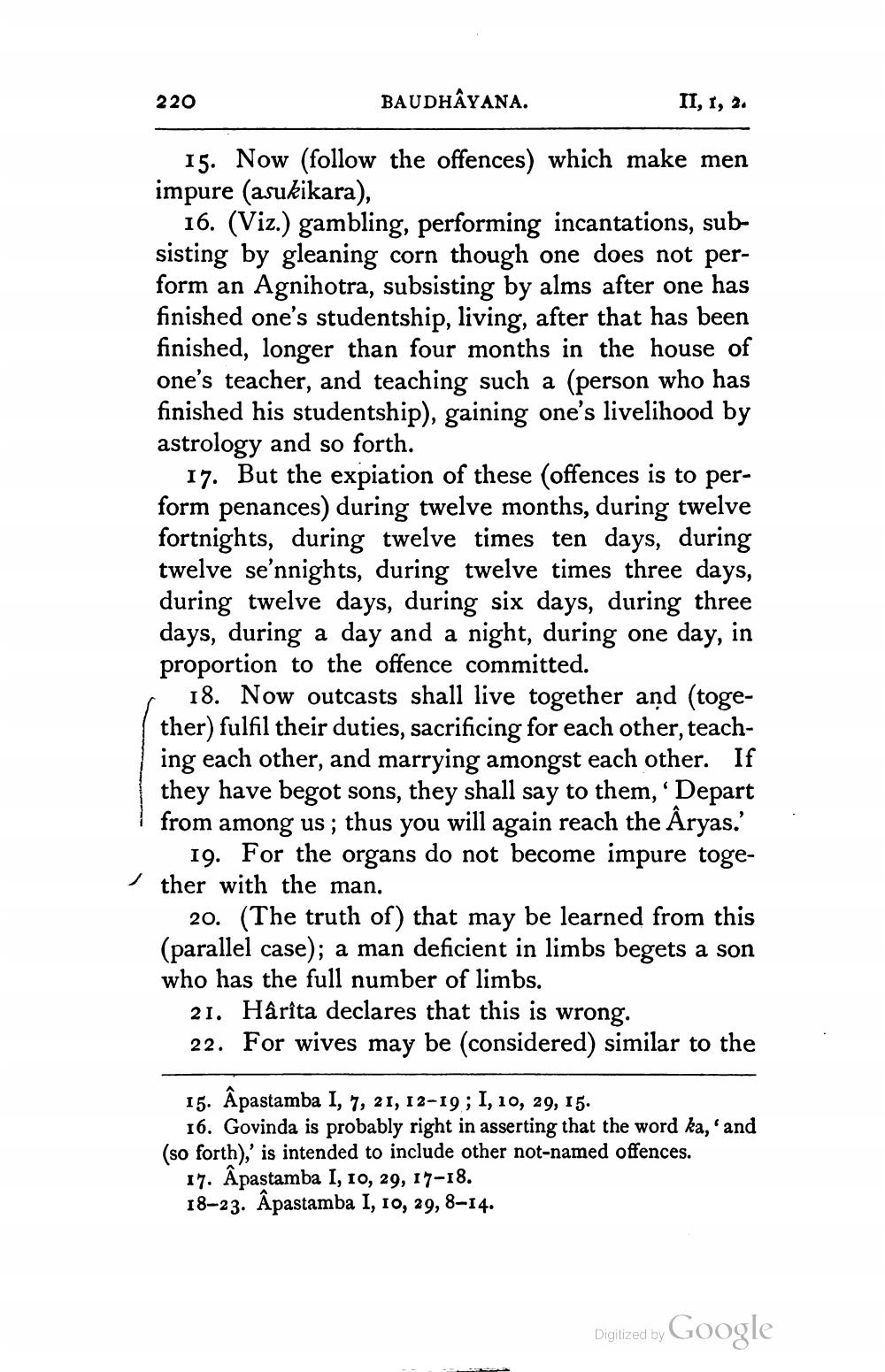________________
220
BAUDHAYANA.
II, 1, 2.
15. Now (follow the offences) which make men impure (asukikara),
16. (Viz.) gambling, performing incantations, subsisting by gleaning corn though one does not perform an Agnihotra, subsisting by alms after one has finished one's studentship, living, after that has been finished, longer than four months in the house of one's teacher, and teaching such a (person who has finished his studentship), gaining one's livelihood by astrology and so forth.
17. But the expiation of these (offences is to perform penances) during twelve months, during twelve fortnights, during twelve times ten days, during twelve se'nnights, during twelve times three days, during twelve days, during six days, during three days, during a day and a night, during one day, in proportion to the offence committed.
18. Now outcasts shall live together and (together) fulfil their duties, sacrificing for each other, teaching each other, and marrying amongst each other. If they have begot sons, they shall say to them, ' Depart from among us ; thus you will again reach the Aryas.
19. For the organs do not become impure together with the man.
20. (The truth of) that may be learned from this (parallel case); a man deficient in limbs begets a son who has the full number of limbs.
21. Hârita declares that this is wrong. 22. For wives may be (considered) similar to the
15. Âpastamba I, 7, 21, 12-19; I, 10, 29, 15.
16. Govinda is probably right in asserting that the word ka, and (so forth),' is intended to include other not-named offences.
17. Âpastamba I, 10, 29, 17-18. 18–23. Âpastamba I, 10, 29, 8–14.
Digitized by Google




